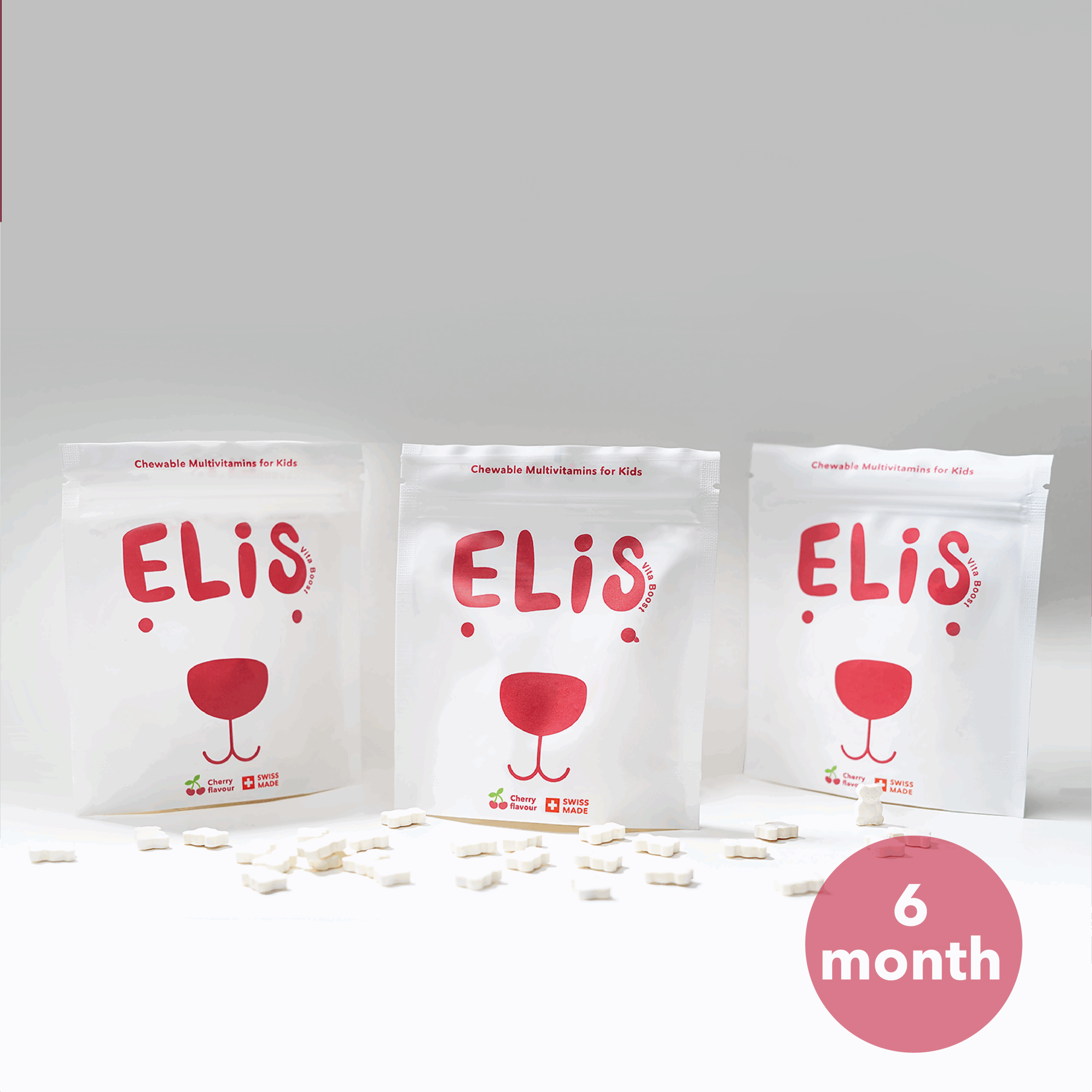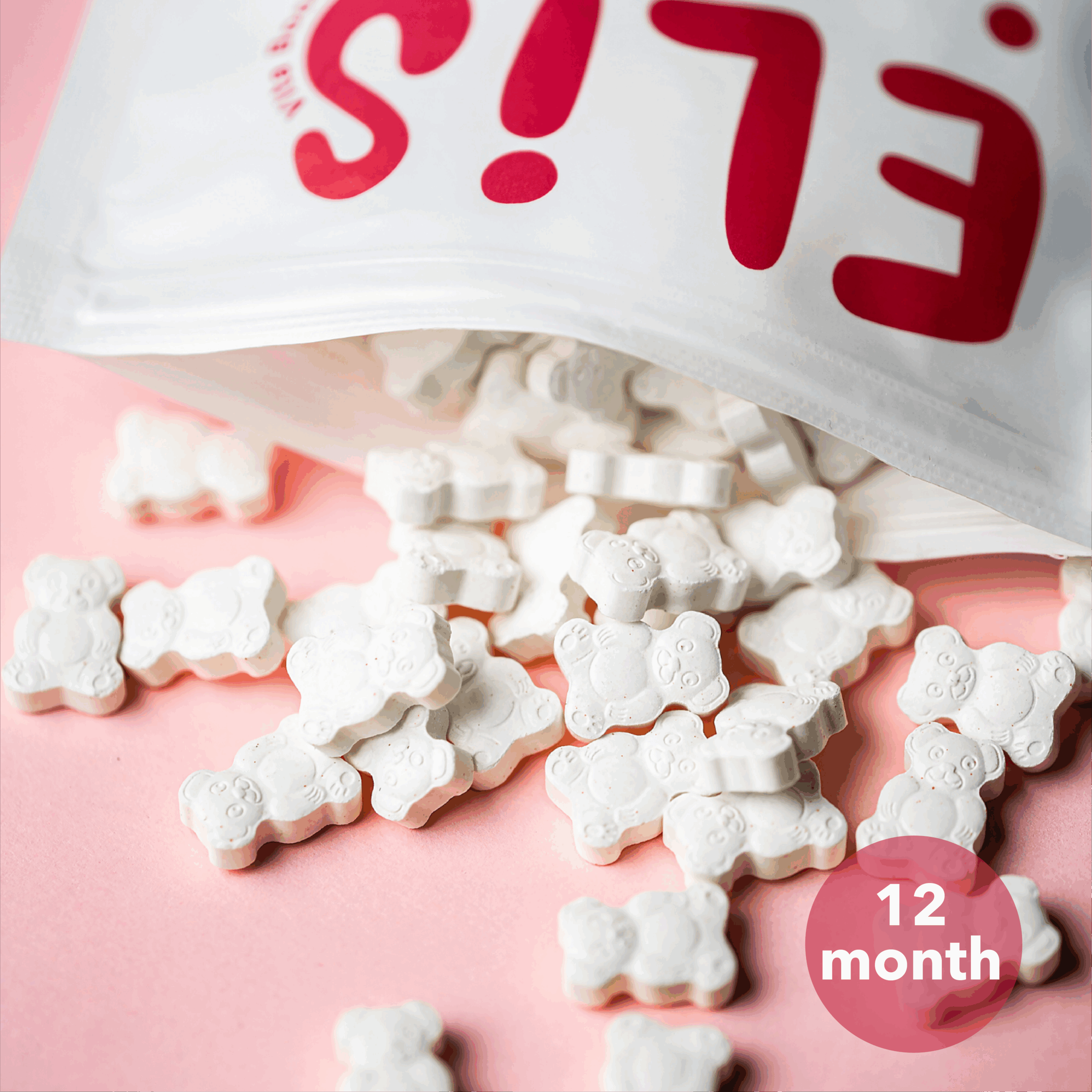Getting children to eat enough fruits and vegetables can be a real challenge. Yet, these foods are the main sources of essential vitamins and minerals for growing bodies. In this article, we share expert tips from nutritionists on how to naturally boost your child’s vitamin intake – and when it might be time to consider supplements.
Why Are Vitamins So Important for Kids?
Children’s bodies grow and develop rapidly, and vitamins play a critical role in this process. Vitamin A supports vision and immunity, B vitamins fuel energy production and brain development, Vitamin C strengthens the immune system and helps iron absorption, Vitamin D is key for strong bones and overall growth. That’s why it’s so important to ensure your child’s diet includes a wide range of micronutrients.
Simple Ways to Add More Vitamins Through Food
1. Hide the Veggies (Cleverly!)
If your child turns their nose up at vegetables, sneak them into meals they already like:
- Pureed carrots blend easily into pancake batter
- Shredded zucchini disappears into pasta sauce
- Finely chopped broccoli hides well in soups or stews
- Spinach becomes delicious in fruit smoothies
2. Let Kids Help in the Kitchen
Kids are much more likely to eat foods they help prepare. Get them involved by letting them:
- Wash fruits and vegetables
- Stir dressings or sauces
- Add toppings or ingredients
- Safely cut soft fruits (with supervision)
This builds independence, fine motor skills, and healthy eating habits.
3. Offer Choices, Not Ultimatums
Rather than asking, “Will you eat carrots?”, ask, “Would you like carrots or broccoli with lunch today?”
Giving kids a sense of control increases their willingness to try healthy options – especially helpful between ages 3–7, when preferences and habits are forming.
4. Set the Example
Children learn by watching their parents. If you eat healthy foods, your kids are far more likely to follow suit.
- Eat together as a family when possible
- Talk positively about healthy foods
- Show enjoyment when eating fruits and vegetables
5. Stay Positive and Patient
Pressuring kids to eat usually backfires. Instead:
- Praise any attempt to try something new
- Don’t bring up past refusals
- Keep mealtimes relaxed and pleasant
- Accept that sometimes they won’t eat it – but keep offering
What About Supplements? Helpful, Not a Shortcut
While whole foods should always come first, high-quality supplements can be a helpful support – especially when:
Your child is a very picky eater
- Your child is a very picky eater
- They’re going through a growth spurt
- It’s winter or early spring (low vitamin D)
- After illness or antibiotics
- Diet is limited due to allergies or other conditions
ELIS Vitamins: Support for When Food Isn’t Enough
A balanced diet is the foundation of your child’s physical and cognitive development. But when food alone doesn’t meet all their needs, carefully chosen supplements – like ELIS.
Vitamins – can help fill the gaps. Think of it as an investment: energy, focus, resilience today, and long-term health tomorrow.
Note: This article is for informational purposes only and does not constitute medical advice. Always consult your pediatrician or a qualified nutritionist before starting any supplement regimen for your child.








